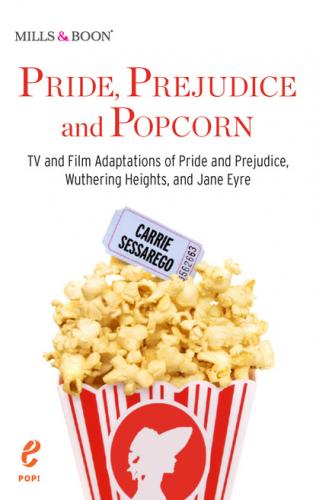Also, in the book, Rochester is forty years old to Jane’s eighteen (and their romance isn’t a case of outdated values—even Mrs. Fairfax thinks Rochester is too old for Jane).
So why on Earth do we long for Jane to end up with Rochester? Although I consider this book to be an early romance novel, it differs from the genre in one crucial aspect, and that is that the romance is not really the point. We care about Jane. We are Team Jane, all the way, and if being with Rochester will make her happy, by golly, that’s what we want for her. If what she wanted to become a pirate queen, then that’s what we would care about. We just want Jane to be happy.
6. The point of the story is not that Jane gets married. The point is that Jane marries Rochester as his equal. At the end of the book she has not only romantic love but also independent financial security, and family and friends who she respects and who respect her. Additionally, Rochester respects and loves her as a person and not a pet, and she loves him as a husband and not a master.
If Jane had married Rochester at the midpoint of the book, and never found out about the insane wife in the attic, then it would not have been a happy ending even though Jane and Rochester would be together and Jane would have married rich, just like Cinderella. The Rochester she was originally engaged to, the one who tried to dress her up and called her his pet lamb, would not have made Jane happy. Jane has to gain the independence and sense of belonging that she craves, and Rochester has to learn to respect Jane.
The triumph of Charlotte Brontë is that she manages to convince many, probably most, readers that the Rochester we see at the end of the book really will be one with which Jane can have a happy life. Rochester has to change, and so does Jane, but once that happens, he can truly be her life’s companion.
7. Jane Eyre is a gothic story. It’s not as gothic as Wuthering Heights, which out-gothics everything pretty much ever, but Jane is pretty darn gothic. Jane spends a lot of time wandering around creepy halls with a candle. She shares these creepy halls with a mysterious being who cackles evilly and bites people, and who turns out to be an insane woman who is locked in the attic and likes to escape and set fire to people’s beds. Jane is dependent in every possible way on a mysterious and domineering (and sexually attractive) employer. She is so isolated that an escape attempt from the bizarre estate of Thornfield almost causes her to die of starvation as she wanders the blustery moors. No matter how sun-drenched an adaptation of Jane Eyre may be, it should strive to convey that sense of menace, mystery, melodrama and isolation.
Anyone who wishes to adapt the novel has two major challenges. One is that although the novel is not unusually long, there’s an awful lot in it, and some of the stuff that is the least cinematic (long conversations) is the most thematically important. The other is that Jane narrates the novel. Although she speaks fairly little, we hear her thoughts constantly. This is an obvious challenge to a scriptwriter, who has to communicate all Jane’s thoughts to the audience without turning her into a chatterbox.
So, let’s see how well these adaptations do with conveying the central themes of this complex book.
Конец ознакомительного фрагмента.
Текст предоставлен ООО «ЛитРес».
Прочитайте эту книгу целиком, купив полную легальную версию на ЛитРес.
Безопасно оплатить книгу можно банковской картой Visa, MasterCard, Maestro, со счета мобильного телефона, с платежного терминала, в салоне МТС или Связной, через PayPal, WebMoney, Яндекс.Деньги, QIWI Кошелек, бонусными картами или другим удобным Вам способом.
